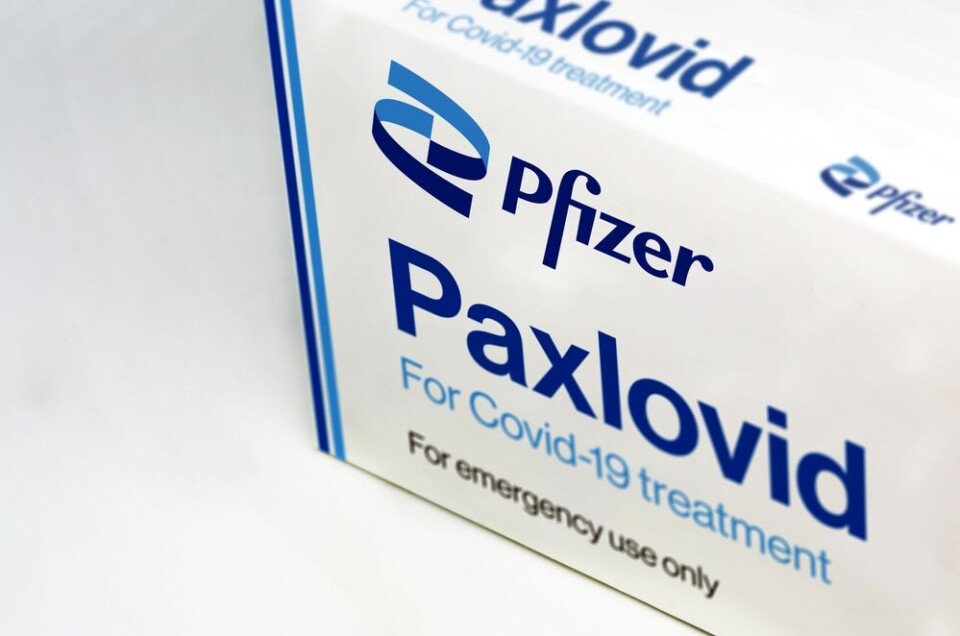-
New luxury Paris-Amalfi sleeper train service
Three-day Orient-Express trip includes hotel stays and Pompeii visit among other excursions
-
Why you can contest a speeding fine when driving to Italy from France
A new initiative has discovered that the majority of Italian speeding fines may be legally void
-
France’s Favourite Village 2026 shortlist announced
You can vote for your favourite until early March
Paxlovid anti-Covid drug now available in France
GPs can prescribe the medicine for those who are at risk of severe illness. We explain how it works and who can get it

Doctors in France are now authorised to prescribe Paxlovid, an anti-viral drug against Covid-19. We explain what it is and how patients can get it, at a time when Covid cases are rising again nationwide.
Health Minister François Braun announced the authorisation for GPs to issue a ‘conditional prescription’ for the drug, from Saturday, December 10.
The medicine, Paxlovid, is made by American drugs giant Pfizer, the same manufacturer as one of the major Covid vaccines used in France, the BioNTech-Pfizer jab.
Paxlovid has technically been available in France since February 2022.
How does Paxlovid work?
It is a combination of the antivirals nirmatrelvir and ritonavir. It "targets the enzyme necessary for viral replication (...) and by inhibiting its action, it blocks the replication of SARS-CoV-2 in the body," said French drug safety agency (ANSM).
It is recommended to be given in the first few days of infection "to patients over the age of 60, or who have risk factors for severe forms of Covid-19 whatever their age, or those with a severe immune deficiency that alters the response”.
It appears to be effective no matter which variant the patient has.
How has it been tested?
Paxlovid was the subject of a study conducted during the first half of 2022 by Epi-phare, a group combining ANSM and public research centre Cnam. It tested the drug on more than 12,000 patients at risk of a severe form of Covid.
The study found that "the pharmacovigilance data collected…confirm the safety profile of Paxlovid".
Covars (the health body le Comité de veille sanitaire, formerly known as the Conseil scientifique) said that the drug enabled an "89% reduction in the risk of hospitalization and death within 28 days”. This has been demonstrated and confirmed by real-life data in Israel and Hong Kong, it said.
Why is it not prescribed more?
Paxlovid is not suitable for all patients, as it can interact with other drugs.
Covars said that its “drug interactions limit its use in patients with organ transplants or undergoing chemotherapy, patients with severe kidney insufficiency, and patients on dialysis”.
Healthcare professionals have also tended not to prescribe it, perhaps because of a lack of awareness or availability in pharmacies, the health authorities said. It could also be because of the growing perception that the Omicron variant is less serious than other forms, Covars added.
What are the other options?
Covars said that "various anti-viral monoclonal antibodies are approved for early treatment and pre-exposure…of patients at high risk of severe forms" of Covid.
However, some of these treatments have declined considerably in the face of Omicron variants, it said.
It added that "new antibodies active against the variants are still in clinical trials".
As a result, it advised people that the existing Covid vaccinations still offer the best defence against the virus this winter.
It comes as cases of Covid continue to rise in France, amid pressure on hospitals due to the ‘triple threats’ of Covid, flu, and bronchiolitis. People have been advised to start wearing masks again in enclosed public spaces such as on public transport.
Related articles
Covid, flu and bronchiolitis are ‘hitting hard’ in France this year
Covid: Daily updates on the situation in France
Wear masks around the at-risk and on transport, says PM
























